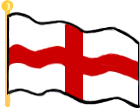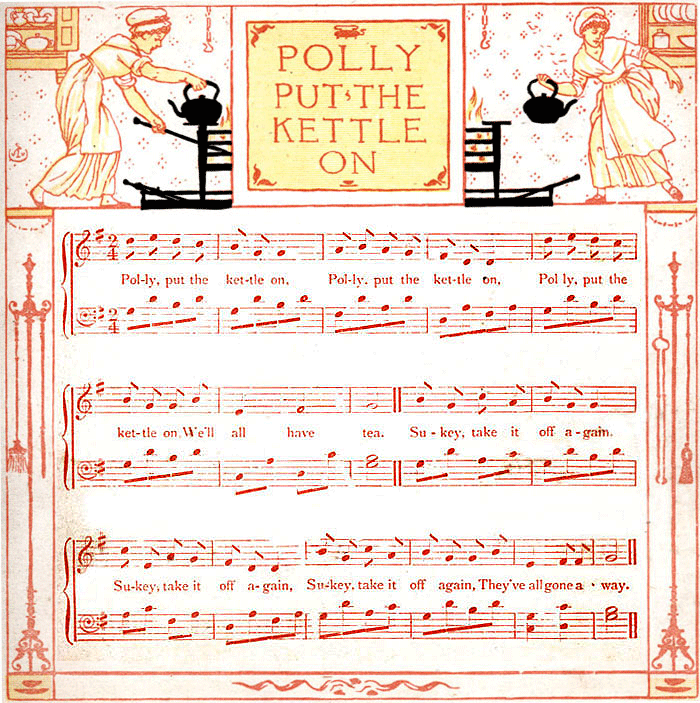Polly Put the Kettle On
Polly was a nickname for Mary and Sukey for Susan in the mid 18th century...
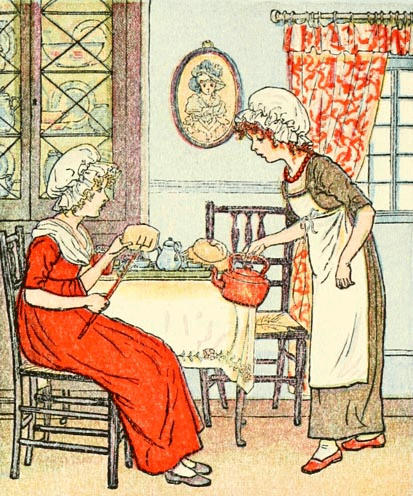
Polly Put the Kettle On
Nursery Rhyme
Polly put the kettle on,
Polly put the kettle on,
Polly put the kettle on,
We'll all have tea.
Sukey take it off again,
Sukey take it off again,
Sukey take it off again,
They've all gone away.
Notes
According to The Oxford Dictionary of Nursery Rhymes (1951), edited by Iona and Peter Opie, in Polly Put the Kettle On, "tea" and "away" are meant to rhyme.
Here's a slightly different version from The Real Mother Goose (1916):
Polly, put the kettle on,
Polly, put the kettle on,
Polly, put the kettle on,
And let's drink tea.
Sukey, take it off again,
Sukey, take it off again,
Sukey, take it off again,
They're all gone away.
The version below is from The Little Mother Goose (1912), illustrated by Jessie Willcox Smith. I haven't found this version anywhere else (so far). It may be a version that was made up in the early 20th century. Some of the material in Jessie Willcox Smith's book is from the Good Housekeeping Magazine. It's possible it was written specifically for the magazine.
Polly put the kettle on,
Susy took it off;
Aunt Jemima's little girl
Has got the whooping cough.
Phoebe rode a nanny goat,
Susy broke her leg,
Father took his wedding coat
And hung it on a peg.

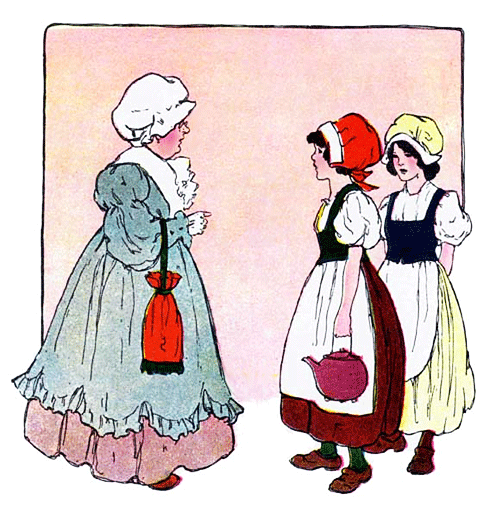
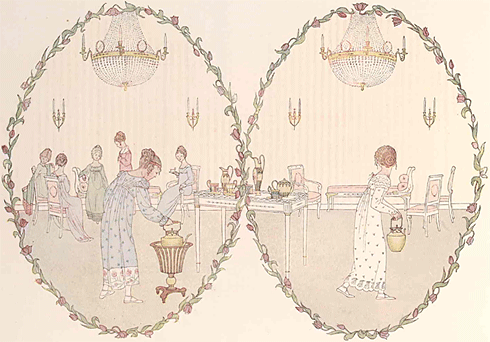

2nd MP3 performed by 17 talented university student musicians who were sisters in the Sigma Alpha Iota International Music Fraternity for Women at California State University-Stanislaus in 2007. The musical score the recording is based on comes from Our Old Nursery Rhymes (1911) arranged by Alfred Moffat.
Thanks and Acknowledgements
The first illustration comes from Kate Greenaway's Mother Goose (1881). The second illustration, the score and the midi tune are from The Baby's Bouquet, A Fresh Bunch of Rhymes and Tunes by Walter Crane (1878). The 3rd illustration is from The Real Mother Goose (1916), illustrated by Blanche Fisher Wright. 4th illustration by H. Willebeck Le Mair from Our Old Nursery Rhymes (1911), arranged by Alfred Moffat.


